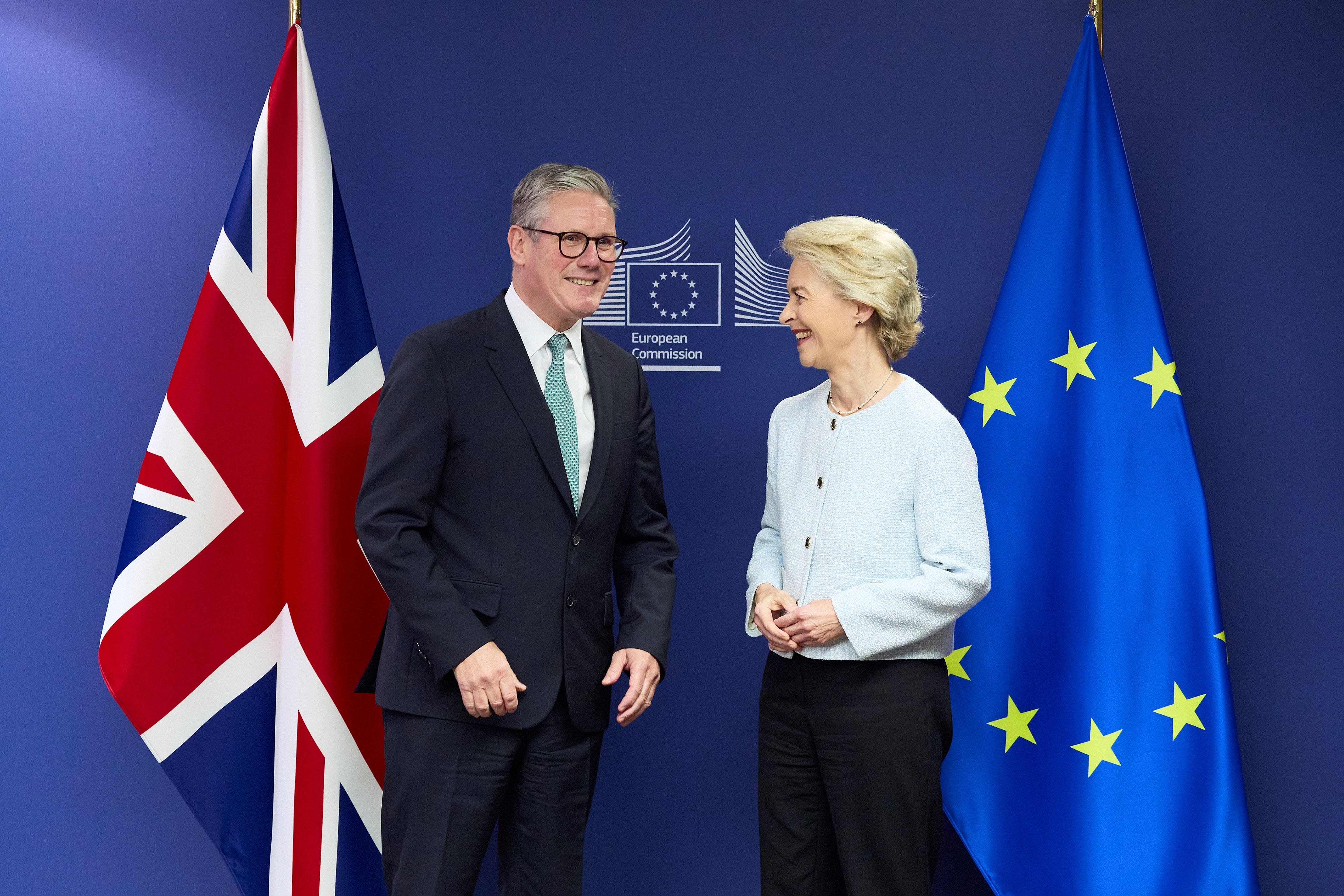UK and EU to work ‘at pace’ on strengthening economic and security co-operation
Sir Keir Starmer said he wanted a closer relationship with the EU to help ‘make Brexit work’.

The UK and European Union will work to strengthen co-operation on the economy and security as Sir Keir Starmer promised to “make Brexit work”.
The Prime Minister met European Commission president Ursula von der Leyen for talks in Brussels, with Sir Keir promising to offer “pragmatic, sensible leadership” as he pushed for a reset in the UK-EU relationship after the turbulent Tory years.
A joint statement after the talks said the two had agreed to meet again this autumn, with a plan for regular EU-UK summits at leader level beginning in early 2025.
“They agreed a stable, positive and forward-looking relationship was in their mutual interests and provided the basis for long-term co-operation,” the statement said.
“They agreed to take forward this agenda of strengthened co-operation at pace over the coming months, starting with defining together the areas in which strengthened co-operation would be mutually beneficial, such as the economy, energy, security and resilience, in full respect of their internal procedures and institutional prerogatives.”
Speaking in Brussels, Sir Keir said: “I firmly believe that the British public want to return to pragmatic, sensible leadership when it comes to dealing with our closest neighbours, to make Brexit work and to deliver in their interests, to find ways to boost economic growth, strengthen our security and tackle shared challenges like irregular migration and climate change.”
Following his talks with Ms von der Leyen, he told reporters: “Of course, there will be issues which are difficult to resolve and areas on which we will stand firm.
“There will be no return to freedom of movement, no return to the customs union, no return to the single market.
“But we will find constructive ways to work together and deliver for the British people.”
Although this first meeting did not go into the details of potential changes, Sir Keir said it was an important step.
“Tone does matter. Resetting does matter,” he said.
“That has been a very important part of the message that I have carried into the meeting today.
“A return to pragmatism, to doing business in a respectful way and in a way which, I think, will focus on deliverables, rather than charging to the nearest camera to use a megaphone.”
Ms von der Leyen said the various arrangements put in place since the Brexit vote, including the Trade and Co-operation Agreement (TCA) needed to be fully implemented.
She said: “We have a set of solid agreements in place. We should explore the scope for more co-operation, while we focus on the full and faithful implementation of the Withdrawal Agreement, the Windsor Framework and the TCA.”
The Prime Minister is under pressure to agree to Brussels’ calls for a deal on youth mobility, to allow young EU citizens greater freedom to come to the UK to study and work and vice versa, something he has so far resisted.
The Prime Minister’s red lines for the reset rule out a return to the single market, the customs union or freedom of movement.
But the Liberal Democrats and pro-EU campaigners pushed for him to give ground on a youth mobility scheme.
Liberal Democrat leader Sir Ed Davey said: “After years of Conservative failure, this new Government must make repairing our broken relationship with Europe a priority.
“That starts with a common sense agreement on a youth mobility scheme between the EU and the UK.”
Bookmark popover
Removed from bookmarks